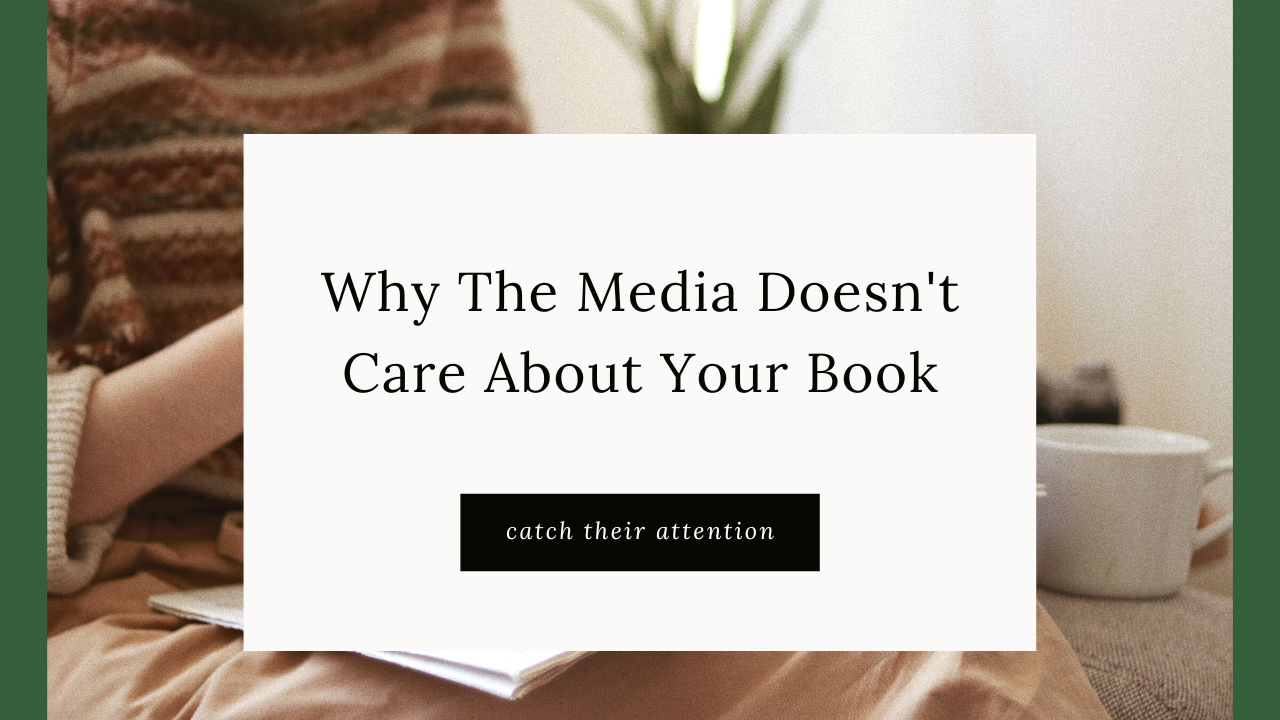
Why The Media Doesn't Care About Your Book
As a writer, it can be disheartening to realize that the media seems more interested in you as a person than in your book. However, it’s important to understand that the media’s focus on you is not a personal insult or a reflection of your book’s quality.
The truth is the media is interested in stories that are newsworthy and relevant to their audience. While your book may be well-written and engaging, it may not necessarily be newsworthy on its own. However, if you have an interesting backstory, a unique perspective, or a compelling message that ties into current events or cultural trends, the media may be more likely to cover you and your book.
Additionally, the media is interested in building relationships with people, not products. By focusing on you as a person, they are able to build a relationship with you and potentially tap into your expertise or insights for future stories. This can lead to more media opportunities down the line, even if they don’t directly relate to your book.
So, while it can be frustrating to feel like the media isn’t paying attention to your book, it’s important to remember that the media’s focus on you as a person can actually be a positive thing.
By building relationships with journalists and sharing your unique perspective and experiences, you can increase your visibility and potentially generate more interest in your book over time.
A few ways to go about gaining their attention are by doing the following:
-
Compelling Press Release: Craft a well-written press release that highlights the unique and newsworthy aspects of your book. Focus on the key elements that make your book stand out, such as its relevance to current events, its unique perspective on a trending topic, or its potential to spark discussions. Send the press release to relevant media outlets, including newspapers, magazines, blogs, and online news platforms.
-
Author Interviews and Op-Eds: Position yourself as an expert in your book's subject matter and offer to provide insights through interviews or opinion pieces (op-eds). Research media outlets that align with your book's themes and audience. Reach out to journalists, bloggers, podcasters, and radio show hosts with a compelling pitch about your book and its relevance to their audience. Prepare key talking points to make your interviews informative and engaging.
-
Engage with Social Media Influencers: Identify social media influencers, bloggers, and YouTubers who have an audience interested in your book's genre or topic. Reach out to them with a personalized message, offering to provide them with a copy of your book for review or as a giveaway to their followers. Positive reviews from trusted influencers can significantly boost your book's visibility and credibility.
-
Host Events and Book Launches: Organize events, both in-person and virtual, to launch and promote your book. Invite local journalists, bloggers, and media personnel to attend. Create a buzz around the event by offering engaging activities, discussions, or workshops related to your book's themes. Leverage social media platforms to promote the event and encourage attendees to share their experiences online, generating additional media coverage.
Be proactive in reaching out to media outlets and individuals, and be prepared to follow up if you don't receive an immediate response. Building relationships with media professionals and delivering value to their audiences can lead to long-term media coverage for your book.

